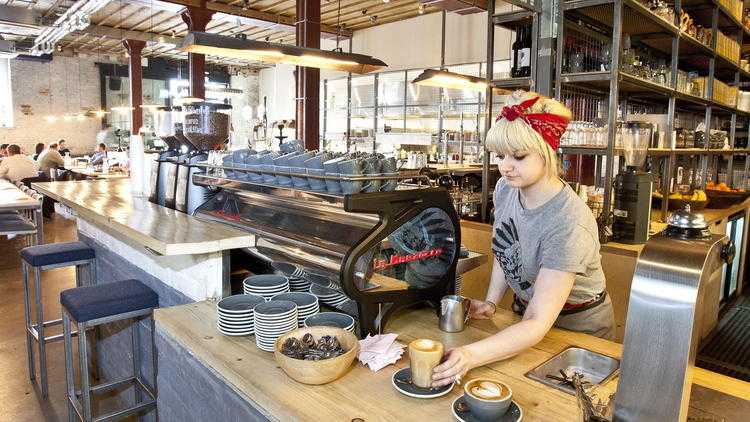LONDON, Uk – New findings from global information company The NPD Group suggest consumers eating out on Britain’s high streets are becoming creatures of habit.
NPD Group foodservice data for the year ending (YE) November 2017 shows that the reason for choosing a particular foodservice operator in nearly one in four (24%) eat-out or out-of-home (OOH) visits was because consumers ‘always/regularly go there’. This amounts to over 2.8 billion visits per year in Britain that can be described as ‘habitual’.
Habitual visits are growing fastest
Habit isn’t the only motivator in Britain’s £55 billion foodservice industry – British people like the convenience of the location (37%) as well as good pricing (24%) – but habit is the fastest-growing reason for visiting a foodservice outlet.
Habitual visits have risen by +10.6% (or an additional 263 million such visits) over the two years to November 2017, seven times faster than visit growth in the overall foodservice market (+1.5%). Habitual visits account for a significant £12.6 billion of OOH consumer spending per year, a figure that has risen by +13.4% in the two years to November 2017, while overall OOH spending has grown by less than half this rate (+6.6%).
Cyril Lavenant, Foodservice Director UK at the NPD Group, said: “We are all spoilt for choice when it comes to eating out, thanks to innovative foodservice chains opening all the time. The conventional wisdom is that with so many options we are promiscuous consumers, choosing one brand and then another – always experimenting and never settling for a ‘favourite’. But our latest data shows that’s not the case. Nearly one in four of us are happy to go on ‘autopilot’ as long as we get good pricing, convenience and the right customer experience. The value of that ‘autopilot’ business is close to £13 billion – or nearly one-quarter of the sales value of the entire British foodservice industry so it’s something Britain’s operators should fight for.”
Apps disrupt loyalty behaviour
People are especially willing to be creatures of habit when choosing coffee shops, a foodservice industry segment where Britain’s consumers spend £2.4bn a year. In coffee shops, a much higher proportion of one in three consumers (32%) choose an operator because they ‘always/regularly go there’. Loyalty schemes play a part in this. NPD Group data shows that coffee shops record three times more visits involving a loyalty scheme than is the case across the total OOH market.
A well-thought out loyalty scheme is a great defensive play but the bar is continuously being raised in terms of what a scheme needs to offer. If a loyalty scheme is enticing, it can encourage habitual visits, although such schemes can also have a detrimental impact on an operator’s bottom line.
But technology is changing things
NPD Group’s research has shown that when an app is offered for ordering ahead for pick up in-store, consumers are less inclined to be loyal. Levels of habitual visits involving an app for pick up are currently much lower (17%) than is the case overall (24%). So, apps can disrupt consumer habits by offering convenience, short-term discounts, money-off vouchers, or even free products.
The NPD Group predicts that app visits will grow much faster than the general market. Currently accounting for 146m visits a year, app visits are set to account for 28% of total eating out market growth over the next two years, reaching almost 200m visits a year by 2019.
This means the potential disruption of habitual visits will become more significant in future.


















